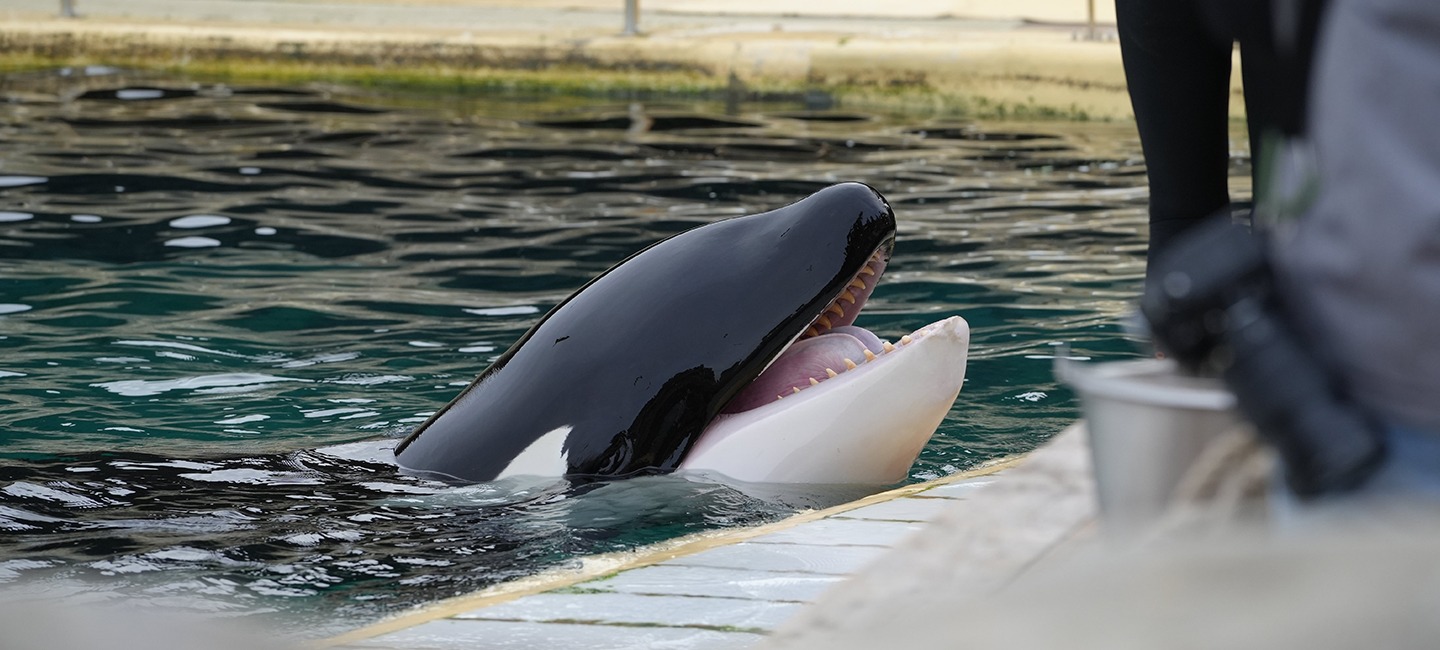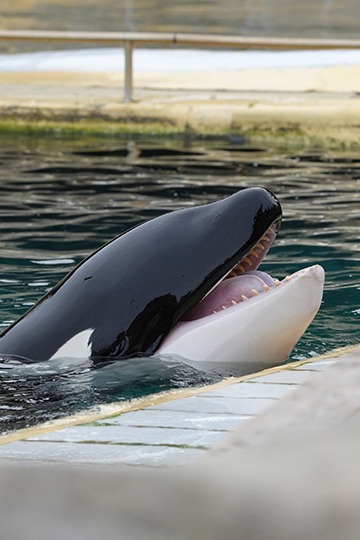

Dolphinariums: a ban on orca possession, dolphin reproduction?
Broadly speaking, the November 30, 2021 law promised to ban the keeping of cetaceans in aquatic parks, as well as their reproduction, from 2026. But after the media impact, when you look at the asterisks, the reality is quite different. Dolphinariums can continue to operate as long as the exploitation of orcas or dolphins is part of a “scientific program”. However, almost three years after the law came into force, these terms are still not defined, leaving the field open to multiple interpretations.
In the meantime, the French Ministry of Ecological Transition has opened a public consultation until June 18, with a draft decree aimed at setting the general characteristics and operating rules of establishments authorized to house live cetacean specimens.
A facade of progress
While, regarding the form, the draft decree does seem to offer some improvements in terms of the well-being of orcas and dolphins held captive in these parks, several provisions remain open to criticism.
The 2021 law prohibits cetacean shows. Nevertheless, the definition of “spectacle” in the draft decree leaves the door open to misuse.
“Is considered a show the staging for entertainment purposes in front of an audience of exercises performed under duress by cetaceans, as well as those corresponding neither to behaviors specific to the species, nor to educational interests, nor to medical training.”
What is “duress”? What is “educational interest”?
The project also authorizes the reproduction of dolphins under certain conditions, notably in the context of the undefined notion of “scientific programs”. The parks thus retain the possibility of renewing and increasing their “stocks”, and perpetuating indefinitely the reproduction of this species endowed with extreme intelligence and sensitivity.
The National council of nature protection opposed this provision, pointing out that “the possibility of continuing to hold not only animals of the Orca and Bottlenose dolphin species held prior to December 2, 2026, but also of allowing (subject to authorization) bottlenose dolphins to be reproduced in captivity as part of scientific programs, is not only unjustified, but also constitutes an open door to increasing the number of animals in establishments, or even transferring them to foreign establishments.”
New standards also regulate the transport of cetaceans. Until now, there was no time limit. Transport is now limited to… twenty-four hours. Exports anywhere in the world will therefore be authorized, leaving Marineland free to sell and ship Wikie and Keijo to Japan. What are we to think, too, when we realize that it is “the veterinarian of the establishment of departure” who will be responsible for assessing the state of health and therefore the fitness of the animals to travel, prior to transport? The same veterinarian who would therefore be mandated by the dolphinarium, and not an independent specialist.
In January, we obtained a court order to prevent Wikie, Keijo and Inouk from leaving for Japan, pending the independent veterinary assessment ordered by the Aix-en-Provence Court of Appeal. Since then, Inouk has passed away, just a few months after Moana, who had only known a life in captivity. For his family, we continue to rally to obtain their placement in a sanctuary. Join us in this fight, sign our petition.